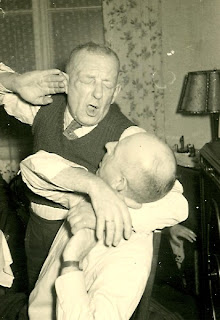BOTH SIDES SWALLOW THE LION'S SHARE OF THEIR OWN ATTORNEYS' FEESOn December 7, 2011, the
Fourth Court of Appeals in San Antonio released its opinion, on rehearing, in a case where a Bexar County jury punished a local HOA and its attorney for pushing too aggressively in its efforts to collect past due assessments. The case received
extensive media coverage when the verdict was first rendered in June, 2010.
The suit,
Hidden Forest Homeowners Association, Inc. vs. James Hern was originally tried to a jury before
Judge Martha Tanner. Following trial, the jury returned a mixed verdict requiring Hern to pay around $946 in past due assessments, plus the HOA's attorneys' fees of $728.00. **Notably, the Association had asked the jury to award attorneys' fees in the amount of $25,000.00** The jury also found that the
Hidden Forest HOA engaged in unreasonable collection practices, and violated its own restrictions by attempting to foreclose on Hern's home and take an individual judgment against him. The jury awarded Hern $11,000.00, denied Hidden Forest's request for judicial foreclosure, and ordered the HOA to remove its assessment lien placed on Hern's home.
The HOA filed an appeal seeking to set aside the award to Hern, and the measly award of attorneys' fees to the Association (which approximate less than 5% of the amount sought by the HOA). Upon analyzing the verdict, the appeals court found that the HOA did not breach its covenants, or engage in unreasonable collection practices. Accordingly, Hern's verdict for damages was reversed.
With regard to the collection efforts, the Court did add this proviso:
Although we do not condone Hidden Forest’s refusal to accept Hern’s prepayment and subsequent settlement offers, we cannot say that its collection efforts were harassing or outrageous. Hidden Forest did not repeatedly call Hern or send letters to his home or business.
The Court refused to side with the HOA in its claims that the jury's award of only $728.00 was against the great weight of the evidence, and should be increased to $25,000.00. Despite the fact that the HOA's attorney testified that he personally spent 75 hours on the case (at $250/hr) , his associate spent over twelve hours on the case (at $200/hr), and his legal assistant spent almost 26 hours(at $125/hr), the Fourth Court found that:
the jury was aware of the simplistic nature of Hidden Forest’s case, which merely sought to recover assessments that Hern admitted he had not paid. The amount Hidden Forest sought in attorney’s fees was more than 26 times the amount it recovered due to Hern’s failure to pay assessments. The jury could have rationally determined that 3.78 hours was a reasonable amount of time to expend in legal services for this case (dividing $728 awarded in attorney’s fees by Newton’s hourly rate of $250).
A full copy of the Fourth Court's opinion can be found
here.
In the end, it appears that the HOA spent a bunch of time and money to collect an amount that the homeowner was willing to pay all along. Spending attorneys' fees chasing attorneys' fees is never a good ida, especially in the arena of HOA litigation. Not surprisingly, though,
local media reports that both sides are claiming victory in this dispute.


